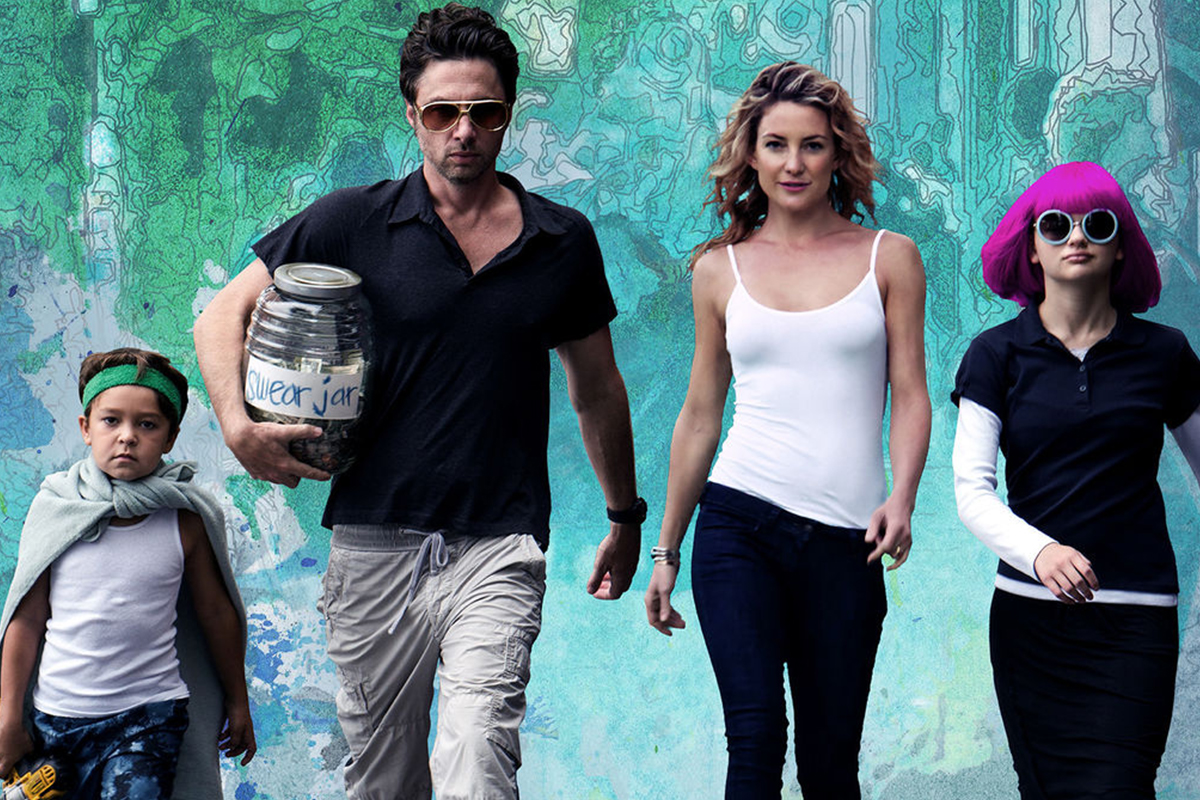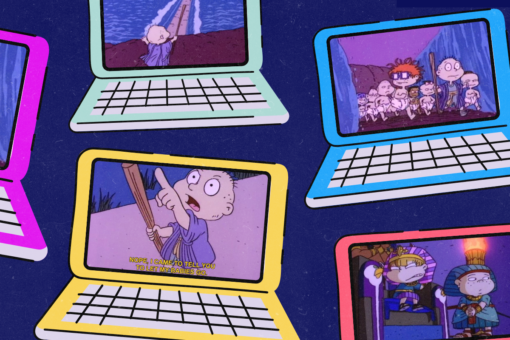The year was 2014. I was a new first-year student at a university with a Jewish population of about five amongst 10,000. My new flatmates and I decided that a good bonding exercise could be to go to the local art house cinema, where it just so happened that the movie screening that week was Zach Braff’s indie comedy-drama Wish I Was Here.
I knew absolutely nothing about Braff other than he was the dude from Scrubs, but was keen for some bonding with my new flatmates. About seven or eight of us booked out a row in the cinema and as we took our places, I didn’t really know what I was sitting down to.
I certainly didn’t expect the first 10 minutes of the film to contain talk of sheitels, Tu Bishvat, tzitzit, yarmulkes, young Chabad rabbis, and dark Jewish humor with, importantly, an Orthodox twist. For what felt like the first time, I felt like I was on the inside of this joke, of having a movie directed at me.
The film was written by Zach and his brother, Adam, and they made it clear from the start that they wanted this to be a Jewish movie. But when it came to casting, they really went above and beyond: With the exception of the 8-year-old son in the film, every Jewish character is played by a real-life Jew, including Braff himself, Kate Hudson, Joey King, Josh Gad, Michael Weston, and Jewish royalty Mandy Patinkin as the patriarch of the Bloom family.
The movie follows struggling actor Aidan Bloom (Braff), who was raised in a religious family and now identifies as more secular. Aidan and his wife Sara (Hudson) live in an area of Los Angeles with low-ranking public schools and would rather send their children to private school. Aidan’s religious father (Patinkin) has been paying for his grandchildren’s schooling, on the condition that they attend yeshiva, or Orthodox day school.
Like many diasporic Ashkenazi Jews, traditional observance tends to dwindle throughout the generations: second- and third-generation immigrants begin to identify more with the country they live in than their Jewish cultural and religious identity. What is unexpected is that the couple’s young teen daughter, Grace (King), takes to Orthodoxy with a fervor that is so true to the journey of becoming ba’al teshuva, the term for Jews who become traditionally Orthodox after being raised in a different denomination. I know this portrayal was authentic, because I’m ba’al teshuvah myself.
Grace dresses in line with tzniut, adhering to the traditional Orthodox guidelines of modesty for women. She excitedly tells her father about how she can’t wait to wear a sheitel (modesty wig) when she gets married. Her vocabulary is rich with Yiddish and Hebrew. And she gently and respectfully teaches her parents about the customs they are ambivalent to.
There is a beautiful moment in the film when Grace’s mother gently suggests that she wear something “more colorful,” buying her leggings and a short sleeved t-shirt. Grace reacts badly, scared her mother is ashamed of how she dresses and maybe, even more, her entire lifestyle. So many Orthodox children of non-Orthodox parents can identify with being torn between respecting the values of their parents, while staying true to their beliefs. I know I certainly struggled to achieve this delicate balance when first becoming more observant. Though the Bloom parents would never have chosen to raise their children in this way, they ultimately respect their daughter’s autonomy over her own Jewish practice, and only encourage her to be an individual within her faith. Grace goes through her own journey of a changing and maturing identity, but never actually abandons this faith.
Wish I Was Here approaches Orthodoxy like many real life Jews do: slightly critically, but never disrespectful. The movie draws attention to the very real intra-community issues like expensive school fees and patriarchal views. Aidan is constantly berated for his choice of career and the fact that Sara provides monetarily for the family. There are expectations of wealth — “Donate to us for Tu Bishvat! Baruch Hashem,” the young Rabbi Rosenberg tells a broke Aidan early in the film, while knowing he can’t even afford the school fees. The film even tackles racism in the community, in a scene where the younger Bloom son repeats dangerous ideas about Arab people that he picked up in yeshiva. His horrified father quickly dispels these myths.
I think my favorite thing about this movie is that it really shows there is no one way to be Jewish. Sara, who doesn’t mention any connection to spirituality throughout the story, never takes off her prominent gold hamsa necklace. Aidan, though no longer religious in the traditional sense, has an extraordinary connection with nature. Where most media portrays Judaism as confined to the four walls of a synagogue/temple/beit midrash, Wish I Was Here takes spirituality out into nature, the way so many of us do in real life. The young rabbi in the movie says it best:
“God can be anything you want him to be. You’re getting tangled in semantics. Try not to get caught up with the God who wants you to be kosher or study Torah. Start with ‘God is the infinite universe,’ and imagine that force may be trying desperately to guide you.”
In the seven years since I first saw this movie in a small art house cinema, I have been on my own religious and life journey, and the jokes and circumstances portrayed in Wish I Was Here have become ever more poignant and relatable to me. It is a story I return to over and over again (thankfully, it’s now streaming on Netflix) and my university friends and I still talk about it every now and then, about how it taught them so much about my culture. It is one of a handful of movies where the richness of our culture is no longer just the butt of the joke. Where there is a spectrum of observance. Where being Jewish isn’t a choice between cultural or religious, but both and neither and somewhere in-between.
One thing’s for sure: I will never forget the feeling of hearing a character scream out, “Shema Yisrael” on the big screen.



